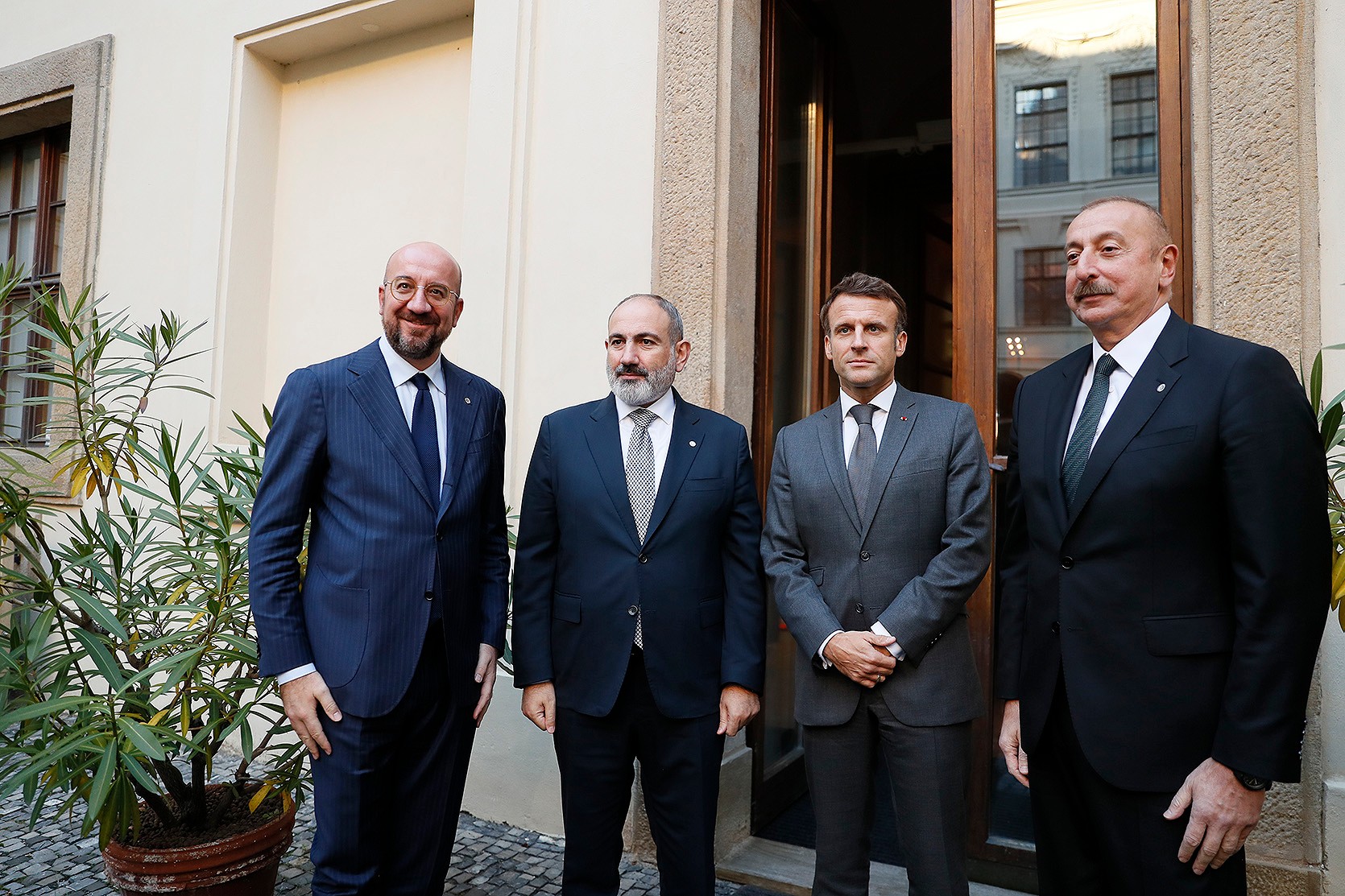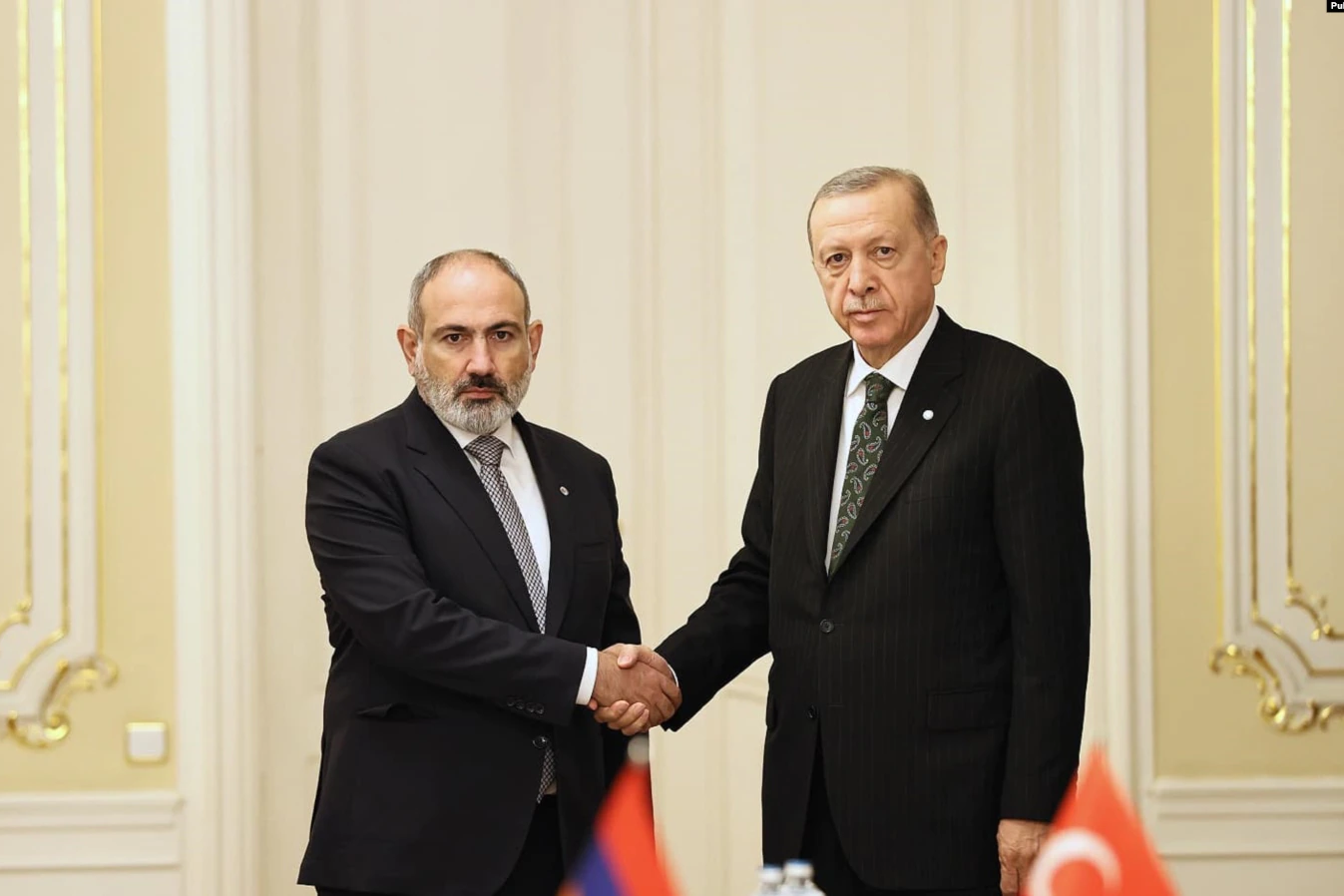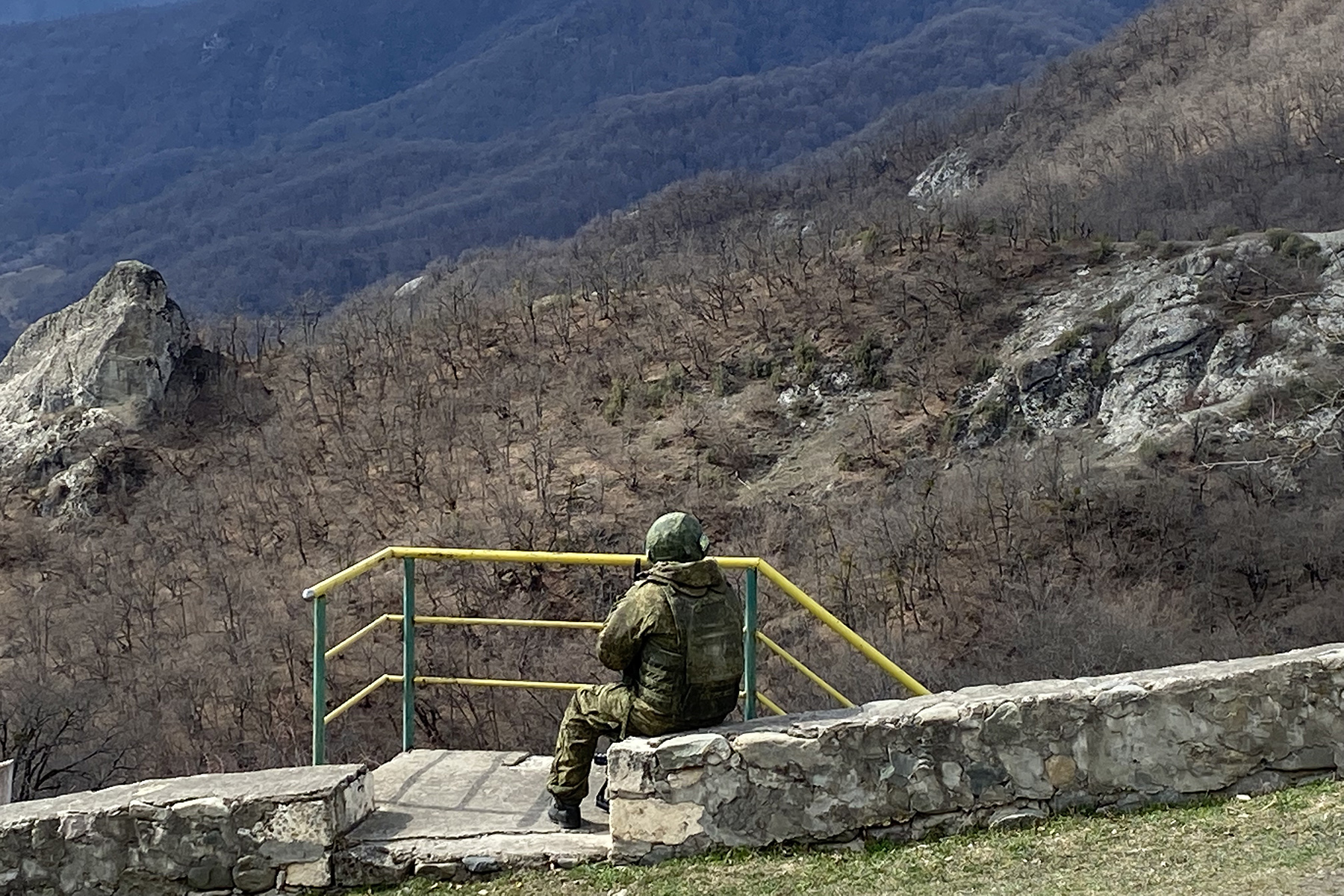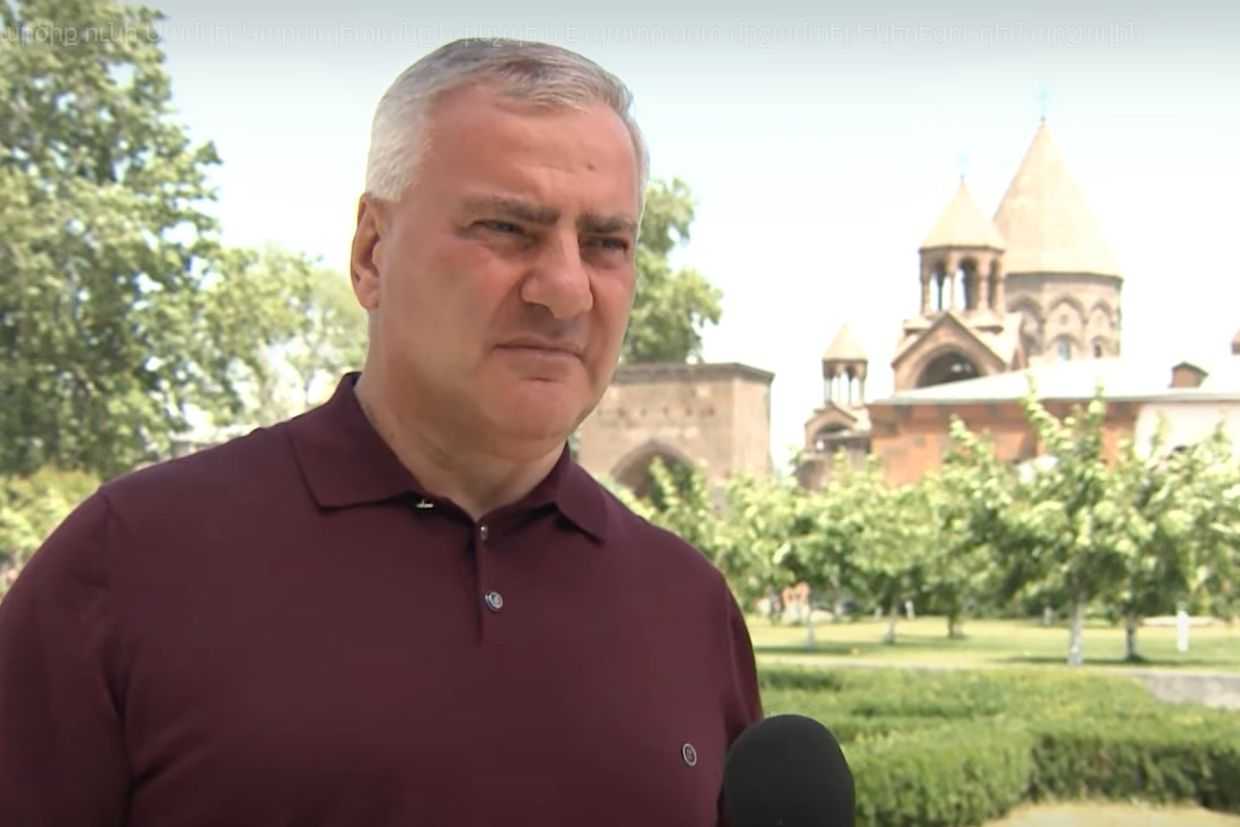
The EU will deploy a civilian observer mission to the Armenia–Azerbaijan border, less than a month after a deadly war between the two countries.
The agreement was reached at a meeting between Azerbaijani President Ilham Aliyev, Armenian Prime Minister Nikol Pashinyan, French President Emmanuel Macron, and EU Council President Charles Michel.
According to Michel, the mission will be deployed for a maximum of two months and will be stationed on the Armenian side of the border.
On the sidelines of the EU Leaders Summit in Prague on Thursday, Pashinyan also held bilateral meetings with both Aliyev and Turkish President Recep Tayyip Erdoğan. It was the first meeting between an Armenian and Turkish leader since Erdogan met Serzh Sargsyan in 2010 in Washington.
Following the meetings, Erdoğan said that as soon as Armenia and Azerbaijan signed a peace treaty, ‘we will open our borders, gates, air, roads and railways’.

Following the meetings, Aliyev also confirmed that Azerbaijani authorities were negotiating directly with the authorities in Nagorno-Karabakh.
‘We plan to intensify consultations within the framework of our foreign policy bloc, as well as to continue informal relations with the representatives of the Armenian population of Karabakh’, Aliyev said.
During Thursday’s meetings, both sides reportedly agreed to recognise each other’s territorial integrity.
A U-turn for Azerbaijan
The deployment of the EU mission follows a 2-day war that broke out on 13 September when Azerbaijani forces launched attacks along much of their shared border, taking positions within Armenia and leaving around 300 dead.
Western efforts to stabilise the situation increased further still following the publication of two videos appearing to show Azerbaijani forces committing war crimes during the war.
The agreement represents a U-turn for Azerbaijan, with EU High Representative Joseph Borrell stating as recently as Wednesday that Azerbaijan was refusing to agree to the mission.
The mission is set to support a border commission to delimitate and demarcate the borders between the two countries.
A question remains over whether the deployment of EU observers will mean Azerbaijani forces withdraw from positions they have taken in Armenia since 2020.
Armenia’s Ambassador-at-large, Edmon Marukyan, said the mission would ‘monitor Azerbaijan’s future aggression’ and would also provide confirmation of the ‘occupied part of Armenia’s sovereign territory’.
He added that after recognising Armenia’s territorial integrity, ‘Azerbaijan can no longer make any territorial claim to the sovereign territory of Armenia in the process of delimitation, which also means that the Azerbaijani armed forces should leave the territories occupied so far’.
Many in Armenia, however, have expressed scepticism, with political analyst Tigran Grigoryan calling those believing Azerbaijan would leave these areas as a result of the meeting ‘irredeemable’.
The fate of Nagorno-Karabakh
Speaking with journalists after the Prague meeting, Ilham Aliyev said that the issue of the ‘integration’ of Nagorno-Karabakh Armenians was ‘another issue’ and would be discussed separately from a peace deal with Armenia.
‘Armenians living in Karabakh are our citizens and we are not going to discuss their fate and future life with any country, including Armenia’, Aliyev said.
‘This is our internal matter, and Armenians will have the same rights as the citizens of Azerbaijan. In any case, they can be sure that their life, integrated into the Azerbaijani society, will be much better than their current life.’
He also said that talks with the authorities in Nagorno-Karabakh had been going on for ‘some time’.
‘I think this will lead to a full understanding with the main population still living in the area of responsibility of the Russian peacekeeping contingent.’

The authorities in Nagorno-Karabakh have already been seen negotiating with the Azerbaijani side without Armenia regarding issues like the Sarsang reservoir, the displacement of Armenians in Lachin and nearby villages, and the change in the route of the Lachin corridor.
The Armenian authorities have also been attempting to separate a peace deal and normalisation of relations with Azerbaijan from the Nagorno-Karabakh conflict, which Armenia describes as an ‘issue of rights’, including the right to self-determination, rather than a ‘territorial conflict’.
While Armenia appears to be ready to recognise Nagorno-Karabakh as part of Azerbaijan, with guarantees for the rights of the local population, the authorities in Nagorno-Karabakh have insisted that no status under Azerbaijani control is acceptable and that such a decision would have devastating consequences for the local Armenian population.
Speaking on Thursday, Aliyev did little to assuage fears of displacement.
‘If anyone thinks that they can live as citizens of Azerbaijan, in my opinion, they will not regret it. But if for some reason this is not suitable for someone, they can choose another place of residence for themselves’, he said.
Natig Jafarli, an economist and executive secretary of the ReAl Party, said the meetings in Prague ‘give hope for peace and positive relations in the region’ but warned that ‘the Kremlin is an obstacle to peace’.
‘Since yesterday evening, Russian TV channels and media have been making statements that clearly question these agreements — they say with exceptional shamelessness that the decisive role in this matter, the only power that can influence the parties, is the Kremlin, and without the direct participation of official Moscow, peace in the region is impossible.’
On Friday, both Pashinyan and Aliyev visited Saint Petersburg for an informal meeting of the leaders of CIS countries. The meeting coincided with Russian President Vladimir Putin’s 70th birthday.
For ease of reading, we choose not to use qualifiers such as ‘de facto’, ‘unrecognised’, or ‘partially recognised’ when discussing institutions or political positions within Abkhazia, Nagorno-Karabakh, and South Ossetia. This does not imply a position on their status.






